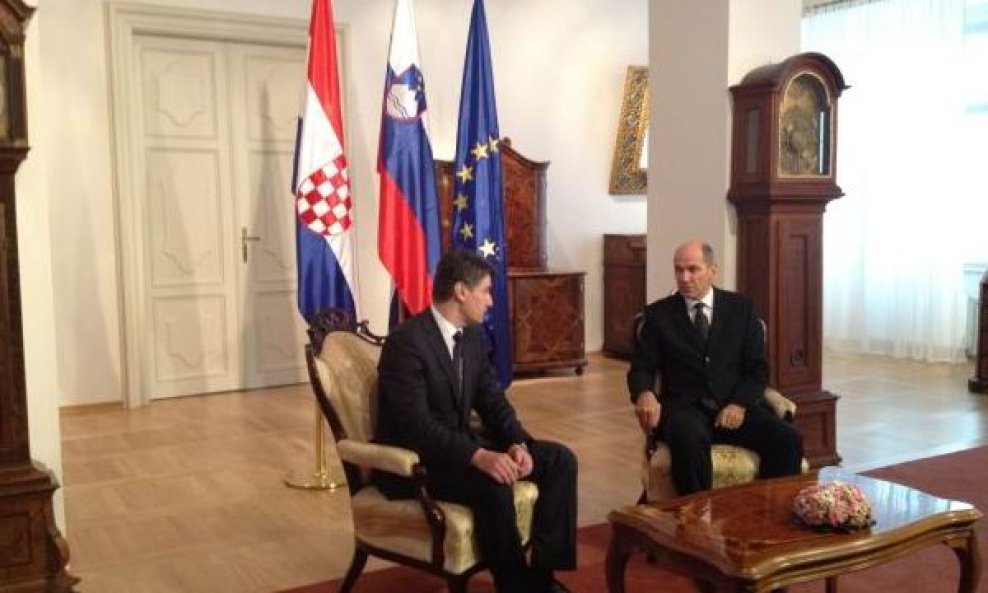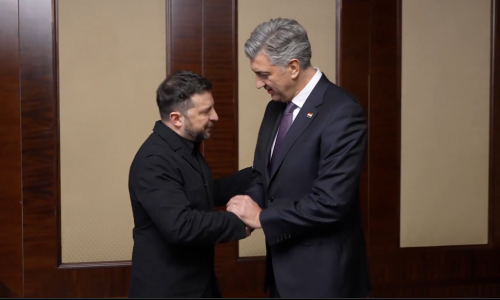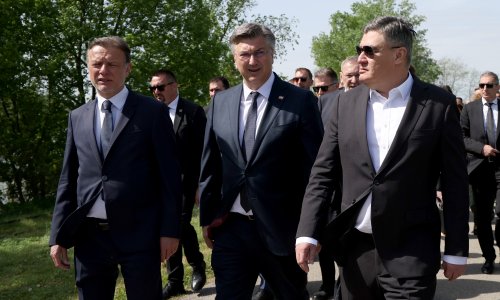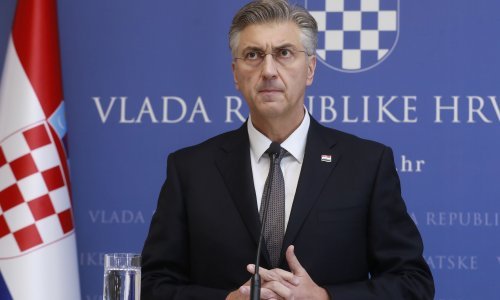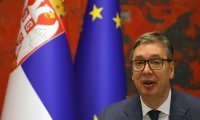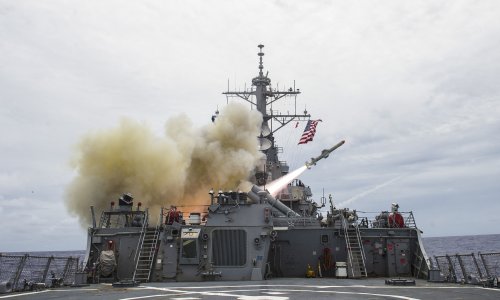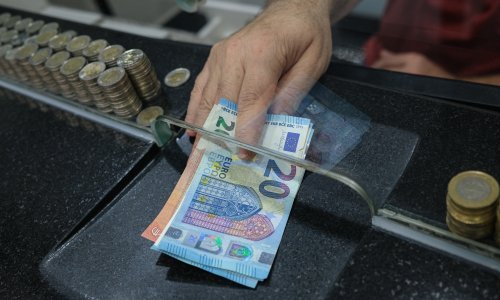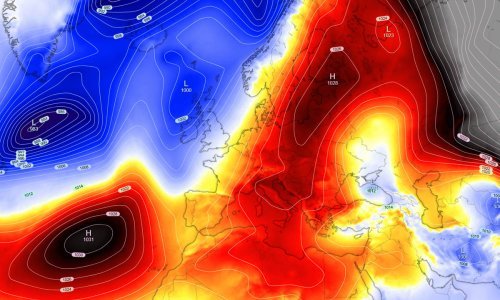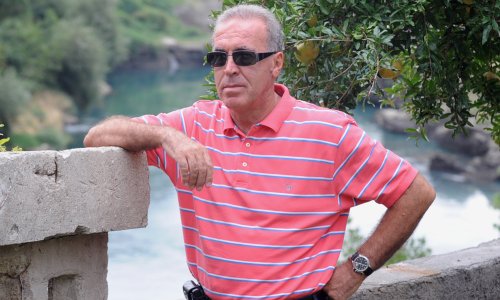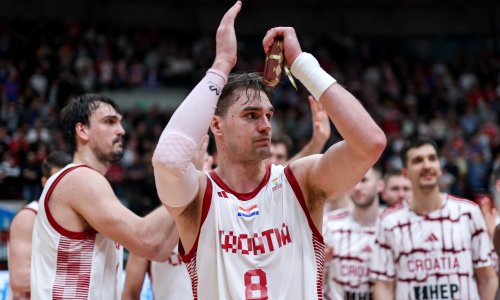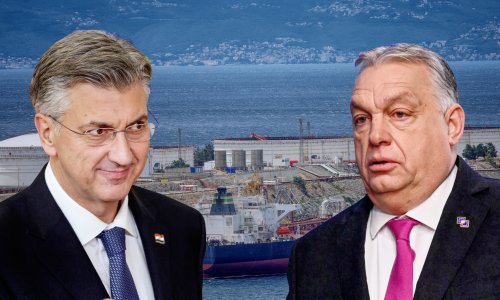Relations between Slovenia and Croatia are good and they have not been compromised even by the recently reopened issue of Ljubljanska Banka - nothing will change in that respect because both governments honour the obligations taken over by their predecessors, the Prime Ministers of Croatia and Slovenia, Zoran Milanovic and Janez Jansa, said in Maribor on Tuesday.
Jansa and Milanovic held a working meeting after Croatia's President Ivo Josipovic, PM Milanovic and Parliament Speaker Boris Sprem laid wreaths in nearby Tezno at a monument commemorating thousands of Croatians killed there in the wake of World War II, in May 1945.
Addressing reporters after the meeting, Jansa said that he was particularly glad about an increase in bilateral economic cooperation in the current time of crisis, with last year's trade between the two countries amounting to more than two billion US dollars.
As for outstanding bilateral issues that were reopened recently, Jansa said that both Croatia and Slovenia were trying to resolve them partly through succession to the former Yugoslav federation and partly bilaterally, to the benefit of their citizens.
One of those issues is Nova Ljubljanska Banka, an affiliate of Ljubljanska Banka, and possible obligations that could arise from that fact for Nova Ljubljanska Banka, Jansa said.
"I am glad to hear the Croatian Prime Minister say that in that regard, everything stays the same as agreed at the time when Croatia closed Chapter 4 in its EU accession talks, and that nothing has changed," Jansa said.
He added that the new Slovenian government would honour all obligations assumed by the previous government or parliament regarding the issue of the Croatian-Slovenian border and other issues.
Milanovic said that there were no serious outstanding issues between the two countries, but rather some technical issues that would have to be dealt with at a technical level. He said that his government was bound by obligations assumed by the previous government.
Milanovic went on to say that a week ago his government withdrew a conclusion on Ljubljanska Banka adopted two to three weeks ago because it was "irrelevant" since it concerned a lawsuit in which the government had no right to interfere.
"The Croatian government in no way changed its position nor did its conclusion imply any change of position," Milanovic said, adding that the conclusion was withdrawn as an act of "good will and good faith".
Jansa said that both governments wanted their cooperation to proceed and their remaining outstanding issues to be dealt with in a friendly atmosphere, stressing that Croatia was Slovenia's fifth most important trading partner.
The remaining technical issues, notably those in the field of energy production, infrastructure and environmental protection, would be dealt with by a joint commission to which Croatia has already appointed its representatives, while Slovenia is expected to do it as soon as possible, Jansa said, expressing confidence that the commission would meet before the summer.
He added that Croatia's accession to the EU would create for the country many opportunities for intensive cooperation with Slovenia in the said areas and that intensive talks would have to be held in the future.
Jansa reiterated Slovenia's support for EU enlargement to include Croatia, as well as other countries in the region.
"Slovenia is interested in Croatia soon becoming not only a member of the EU but of other European associations as well, such as the Schengen area, when it wants it and when it meets the necessary conditions," Jansa said, adding that this was why it was important to honour the existing agreements.
Speaking of the expected ratification of Croatia's EU Accession Treaty in the Slovenian parliament, Milanovic said that Slovenia would decide on the matter in line with its own procedures so that Croatia could join the EU on time, in July 2013.
Jansa said that he expected the process of ratification of Croatia's Accession Treaty to be completed within the time frame as defined by the European Council, namely by the second half of 2013, adding that all acts of ratification were of equal value because they did not affect the pace of the ratification process.
Milanovic noted that Croatia's EU accession would create new opportunities for both countries considering their proximity and their knowledge of their own and one another's advantages and disadvantages.



